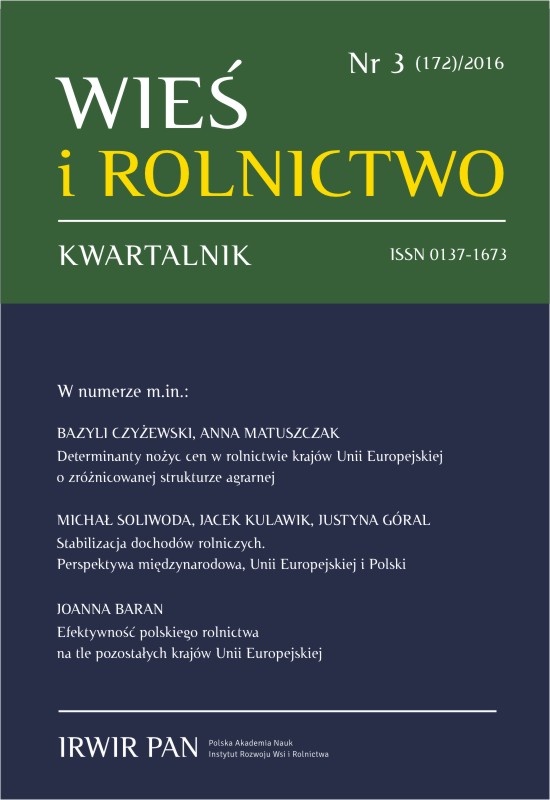Uwarunkowania uczestnictwa młodzieży wiejskiej w procesie innowacji społecznych
DETERMINANTS OF RURAL YOUTHS’ PARTICIPATION IN THE PROCESS OF SOCIAL INNOVATIO
Author(s): Katarzyna ZajdaSubject(s): Social Sciences, Economy, Sociology, Economic development
Published by: Instytut Rozwoju Wsi i Rolnictwa Polskiej Akademii Nauk
Keywords: social innovations; rural youth; human capital; social capital
Summary/Abstract: The aim of implementing social innovations is to eliminate the existing socialproblems, including problems of groups that are discriminated against. Contemporaryyouths are definitely a group which is disfavoured on the labour market. The objectiveof this paper is to point out the potential determinants of rural youths’ participation inthe process of social innovations. The analysis focuses on selected components of theparticipants’ human and social capital, which may be important for their participationin social innovations. The paper presents the results of sociological research (involvingthe auditorium survey technique) carried out in the period 2014–2015 in WielkopolskieVoivodeship, among young people aged 16–19 residing in rural areas. The participantsattended upper secondary schools (vocational schools, secondary technical schoolsand general secondary schools). The performed analyses led to the identification ofcomponents of youths’ human and social capital which may have a negative influenceon their participation in social innovations. First, young people have little knowledge oninnovations, including social innovations, while such knowledge is especially valuablefor future social innovators (also those who follow good examples in this regard) orpioneers of adopting social innovations in local conditions. Secondly, young people displaylittle interest in local matters, which limits the possibility of their participation in socialinnovations implemented by local entities. Thirdly, youths’ social activity is only limitedto school environment, which means that after graduation they may not continue thatactivity and thus not belong to networks in which social innovations are developed,implemented and adopted.
Journal: Wieś i Rolnictwo
- Issue Year: 172/2016
- Issue No: 3
- Page Range: 111-128
- Page Count: 18
- Language: Polish

